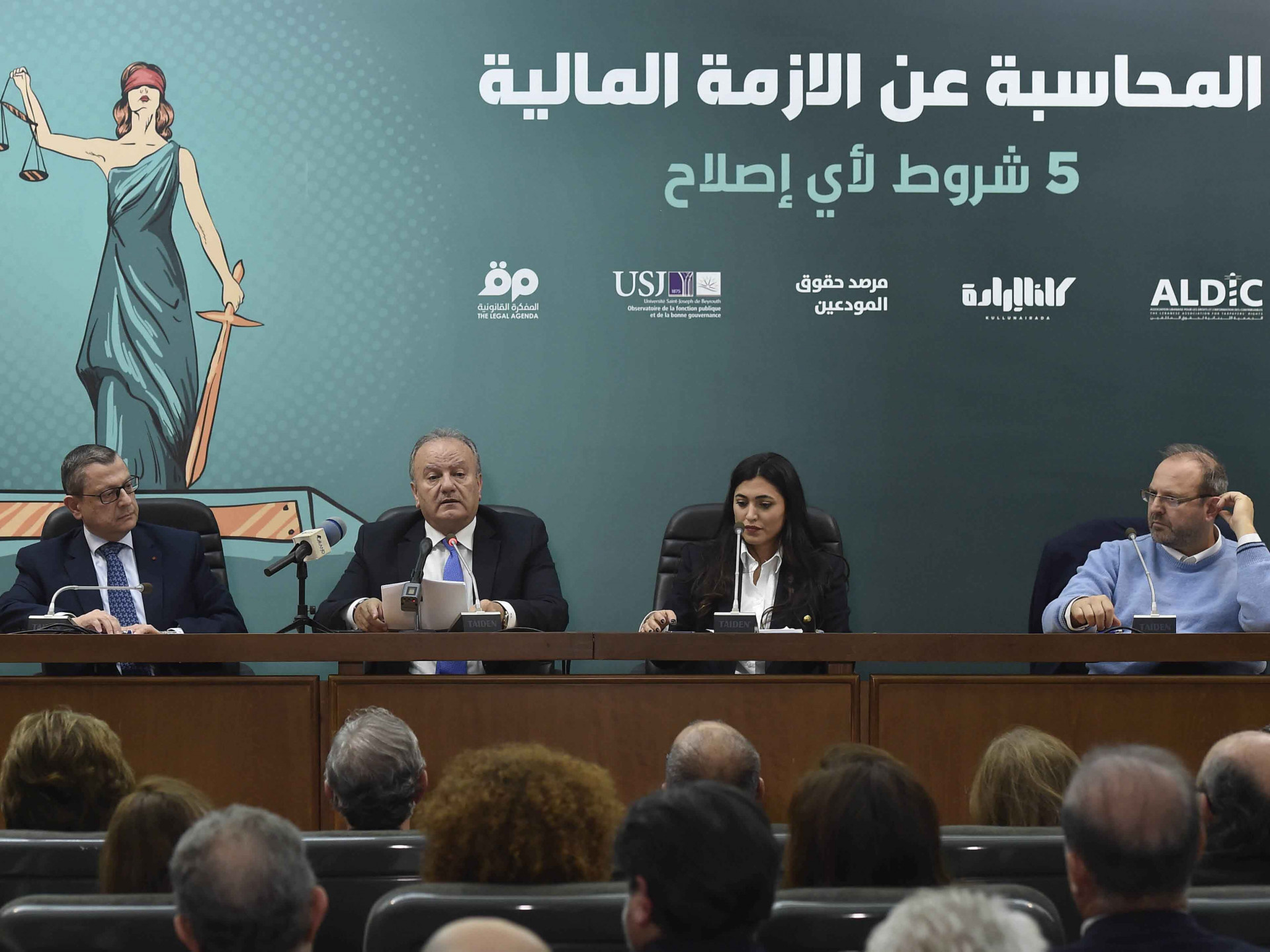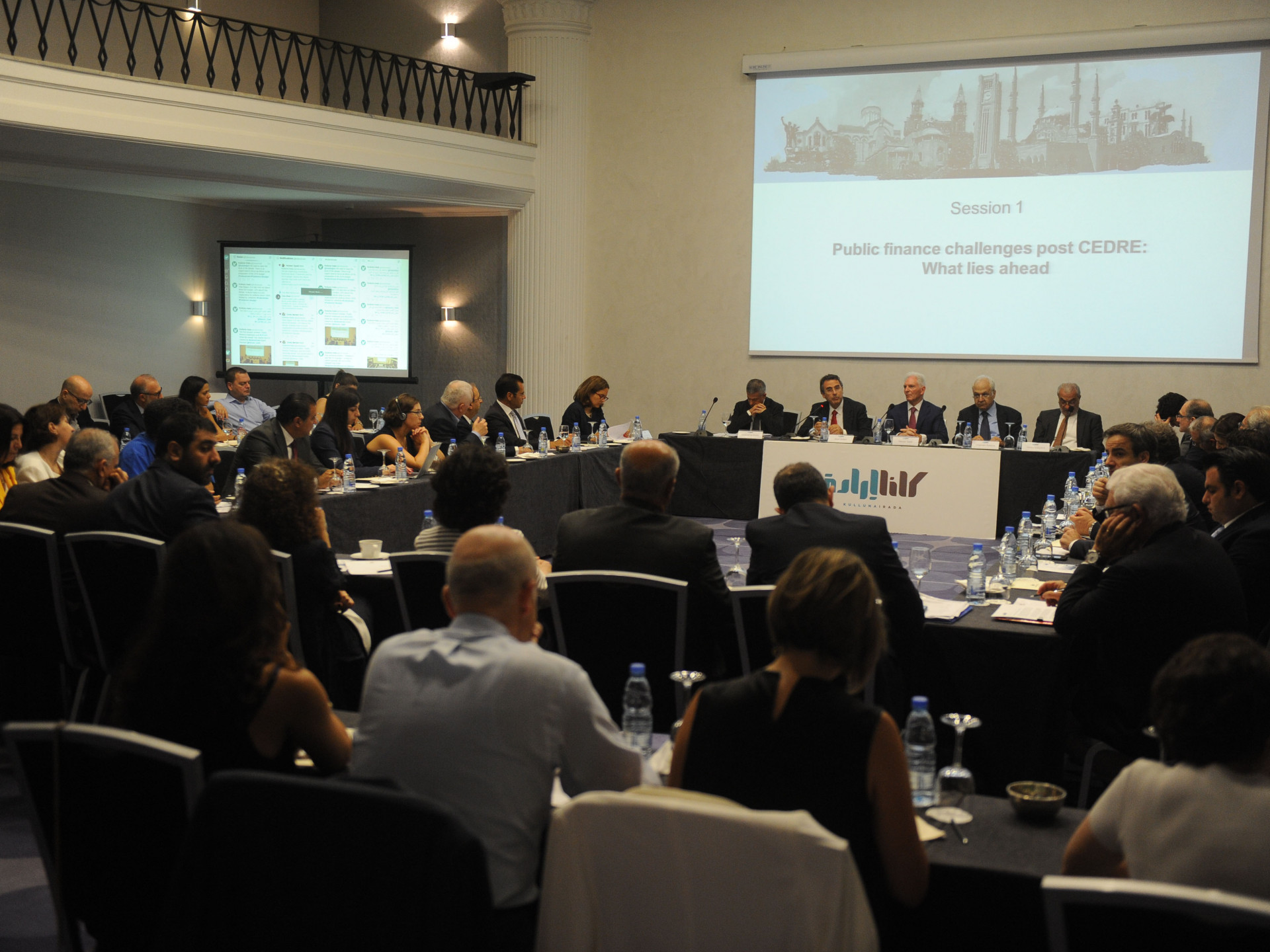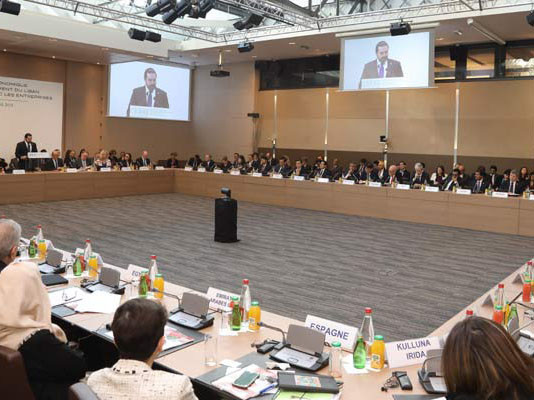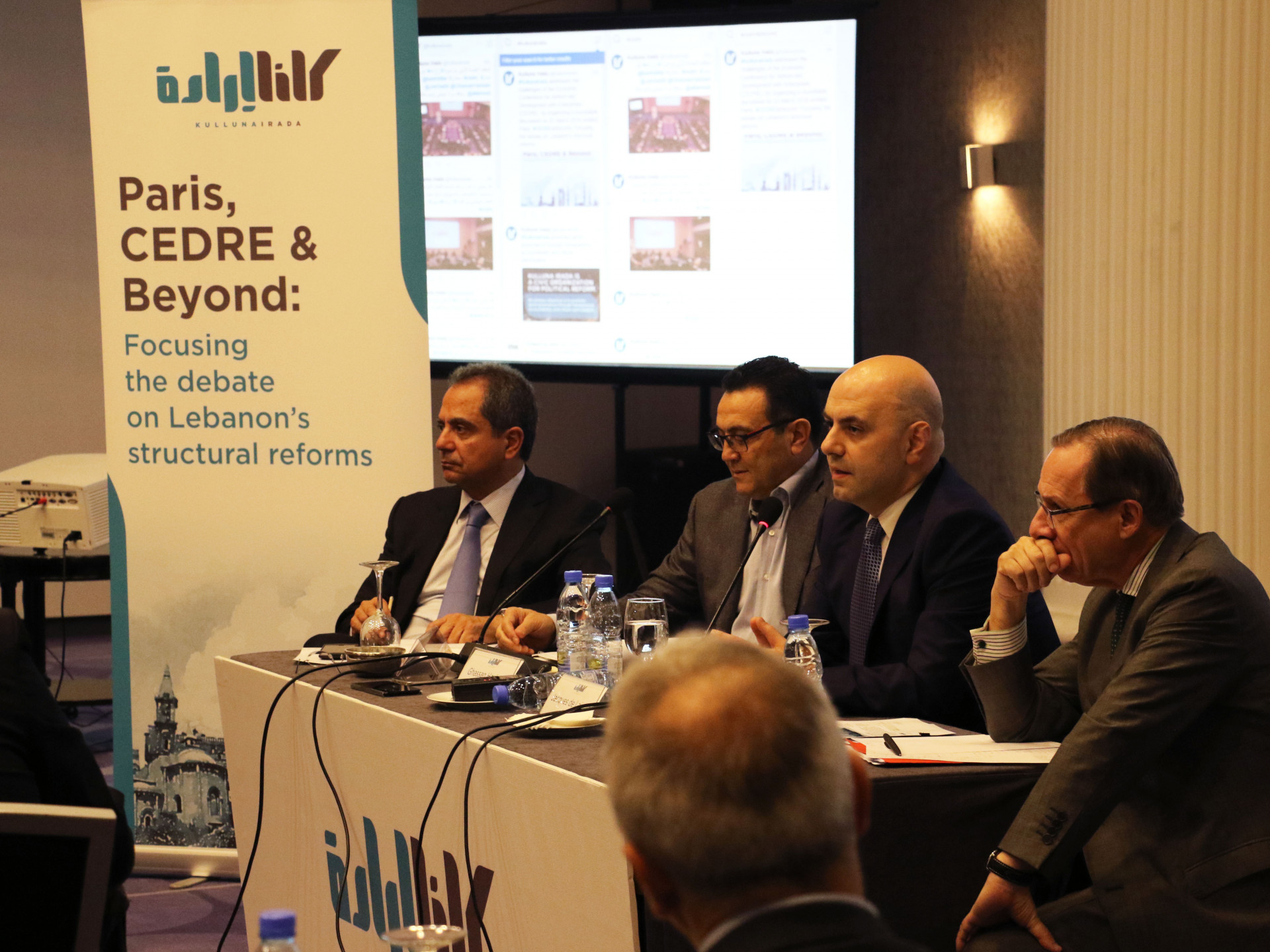Beirut, Lebanon – Amidst the hardest economic, monetary, financial, banking, and social crisis that Lebanon has experienced till date, a group of activists organized a panel discussion with legal, economic, and governance experts to set a roadmap to get out of Lebanon’s current crisis. The discussion gathered a large audience of concerned Lebanese citizens at “The Egg”, an abandoned theater in Beirut and one of the landmarks of the Lebanese civil war, on Wednesday, February 20, 2020.
“The law proposal for Judicial Independence and Transparency presented by Legal Agenda is now being discussed in the Parliamentary commissions. It is our duty to keep pushing for it as Judicial Independence and Transparency has been one of the most prominent demands of the revolution”, said Myriam Mhanna, lawyer and researcher at Legal Agenda.
During his intervention, Karim Daher, President of the Lebanese Association of Taxpayers’ Right (ALDIC) highlighted the need to fight corruption through: a social safety net, an independent judicial system, and pension reforms.
“In order to fix the shortage in hard currency liquidity that we are facing today, the International Monetary Fund (IMF) is demanding a program with a set of rules to rebalance the Lebanese economic system. These measures include: VAT increase, official devaluation, privatization of State assets, and restructuring the public sector”, he added.
For her part, Kulluna Irada’s Managing Director, Hala Bejjani, addressed the issue of the payment of the March 2020 debt maturity, which the organization has been highly vocal against.
“Financial experts and economists have been unanimous for the past few years that paying Lebanon’s debt is unsustainable and that debt restructuring is the country’s only way forward” she assured.
“Debt in countries similar to Lebanon should not exceed 50-60% of GDP while ours is standing at more than 150%. According to the IMF, we need to negotiate up to 50% of our debt through debt restructuring”, she warned.
As Lebanon is facing growing unemployment, only 4,000 to 5,000 job opportunities are created per year, the Lebanese Center of Political Studies’ (LCPS) Director, Sami Atallah, touched on the ways to create new job opportunities in the private sector.
“Our manufacturing sector exports up to 1,400 goods to 100-120 countries, out of which 137 are of high quality. We should encourage these industries that can create new job opportunities for high-skilled people”, he explained.
Finally, Kamal Hamdan, Executive Director of the Consultation and Research Institute (CRI), warned of darker future days where the difference between the official and unofficial exchange rates will finally take its toll on the purchase power of 70-80% of the Lebanese population who get their wages in Lebanese Lira.
“It’s key for all organizations, movements and individuals, part the uprising, to meet on a common goal in order to carry forward and overlook their differences. At this stage we have to accept the idea of forming a leadership and developing a new mechanism to converge all groups.”
The discussion was concluded with a Q&A session.
Watch the livestream of the panel discussion here.

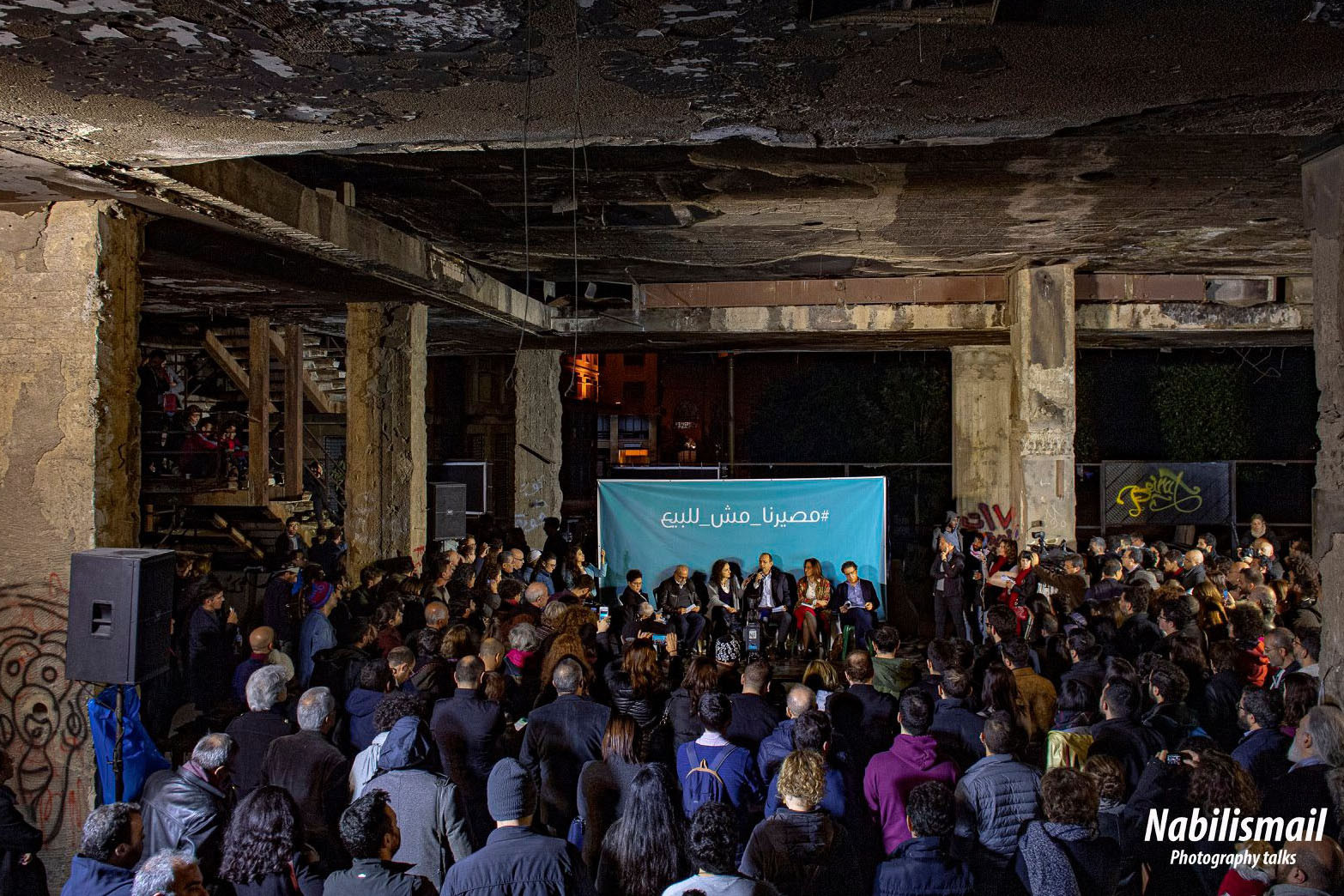
.jpg)
.jpg)


